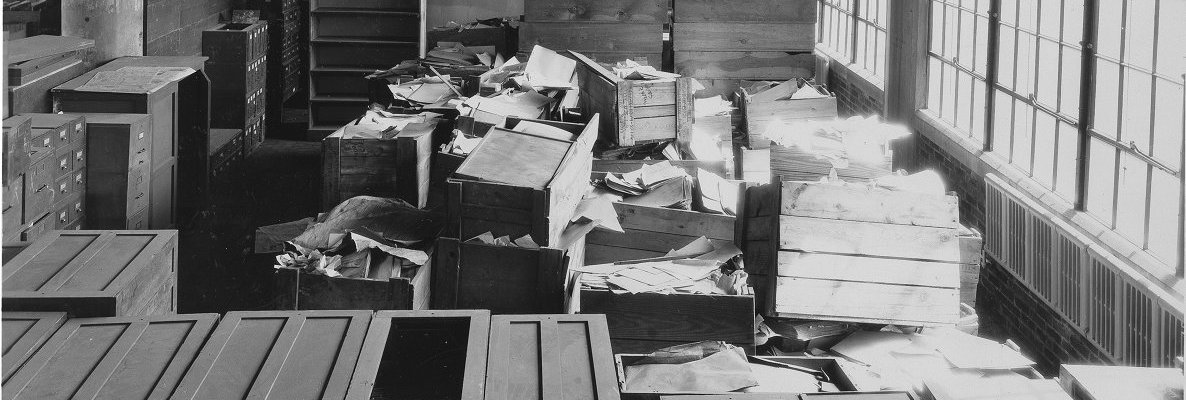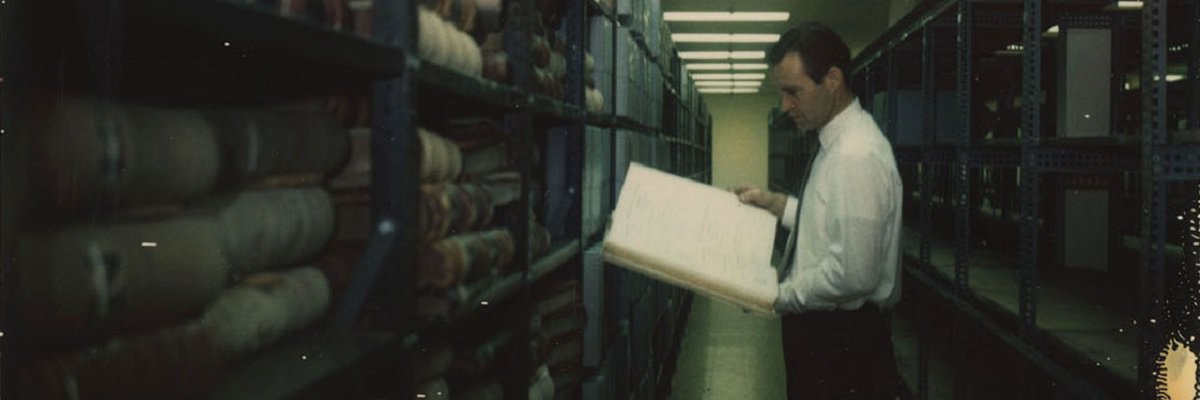Wrapping up Sunshine Week, a young journalist reflects on the joys and frustrations of her burgeoning “document state of mind.”
Every time I leave MuckRock HQ, I have doc brain. I spend the next few days viewing everything as a potential records request. Every item in the grocery store turns into a stack of paper. A conversation about food stamps I overhear on the bus becomes a pitch. I watch a documentary and jot down every government agency mentioned that might lead to a paper trail.
I learned later that what I was describing is a favorable phenomenon known in the biz as “the document state of mind.” I also found that this mental state is not just about seeing what you can request, but what you should. As journalists, there are docs out there that we have a responsibility to pursue, digest and disseminate. This tips the balance of power a little more in the people’s favor.
It’s not all scandal and exposé. One of my first successful records request was a set of Board of Education minutes from a school near where I grew up. In 2005, the school partially suspended a group of kids for appearing in MySpace photos with red solo cups. The doc reveals a cautionary tale of a school grappling with the evolving landscape of digital communication, a tale that would have been lost without the magic of FOIA.
Another lesson I’ve learned during the past few months that I’ve been working with MuckRock is that the account of a withheld doc is a story all unto itself. Unfortunately, that seems to be the dominating narrative of my time digging into public records.
About halfway through my first large FOIA project, and after a few stern if not catty responses, the Boston Police Department stopped responding to my emails (and phone calls) altogether. I became familiar with the common and dubiously legal practice of police departments charging five dollars per incident report, an amount surely in excess of the actual cost of the record’s reproduction. I met folks at the records desk who claimed not to be able to access the things their department is specially designed for, or who told me, without explanation, that the documents I wanted would not be released.
In short, I came face to face with bureaucratic ineptitude and bullheadedness.
More troubling, though, is the pervasiveness, at least in this city, of the unwillingness to comply. I am among what must be dozens of journalists, activists and concerned citizens attempting to get my hands on emails from the mayor’s office that would shed some light on the shrouded Boston Olympics bidding process. I filed my request in late December.
After about a month, I spoke to a paralegal who handles records requests in the mayor’s office who said that a packet of relevant docs was to be distributed shortly. In February, I and my fellow requesters collectively gasped and then quickly sighed - the city sent docs, but not the ones we asked for. After another month of radio silence, emails finally rolled in, though once again, not the ones we’d asked for. In fact, the emails that we received contained almost exclusively positive views on the Olympics, and none of them was to or from the mayor himself.
There will be many more of these roadblocks in my future. Despite the fact that these records are rightfully ours, it’s starting to look like nothing shy of a lawsuit will shake them free. After all, I live in Massachusetts, where the secretary of state’s interpretation of public records law has laid out the carpet for police departments to withhold basic criminal records, particularly those of law enforcement officers.
While the prospect of the Olympics has some politicians chomping at the bit, it’s had an unintended effect on Boston’s media landscape. From alt weekly to conservative rag, from small newsroom to large, area journalists are a united front clamoring for a relatively small number of documents. We’re a big group of people to provoke. We’re loud, too. And we’re not going anywhere.
Image via The National Archives




